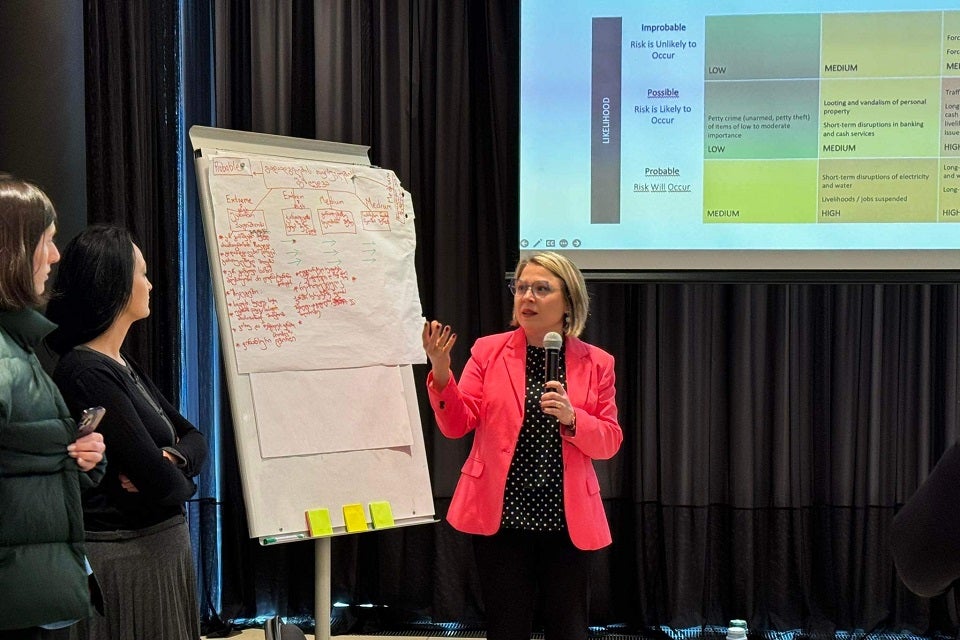PDO and civil sector representatives introduced to gender-sensitive monitoring of human security
Date:

Human security monitoring in conflict-affected communities, especially those adjacent to the administrative boundary line (ABL) and mainstreaming of gender aspects in this process can improve the situation and provide more security for women and girls living in these areas. For this purpose, with the support and initiative of UN Women, international expert Zara Järvinen has developed the Gender-Sensitive Human Security Monitoring Tool, intended for the Public Defender’s Office (PDO) and civil society organizations.
On 13 and 14 February, a two-day training session was held in Tbilisi, during which the participants were trained in the practical techniques and methods of gender-sensitive human security monitoring. The training was attended by the representatives of the PDO and UN Women’s partner CSOs, with 14 individuals trained in total.
Participants learned about the rationale of human security, the practices and challenges of its monitoring, and the specifics of program development, its analysis, reporting and advocacy. The attendees improved their knowledge of monitoring methods and principles, which will help them to implement activities among conflict-affected communities—especially in the villages adjacent to the ABL, where security risks are higher—in order to focus on the specific aspects of human security that are related to women and girls and that are significant from a gender perspective.
“It is of utmost importance to enhance the knowledge of women’s organizations and activists in terms of human security monitoring, as it allows for a multifaceted and comprehensive assessment of gender-specific threats facing the population in specific locations,” remarked the training participant Ekaterine Gamakharia, Head of the Tbilisi Branch of Women Fund “Sukhumi”. “On the other hand, solidifying the relevant skills with regard to data collection and analysis represents the best way to identify risks at an early stage, [in order] to plan timely interventions for their elimination, i.e., for early warning.”
The purpose of the training was to enhance the security of people living adjacent to the ABL, among them women and girls, with regard to risks to human security and the timely identification of potential escalation and its effective prevention, as well as to build the capacity of participants to conduct gender-sensitive evaluation, monitoring, analysis and reporting concerning the security situation of conflict-affected people and IDPs and to ensure mutual cooperation in this area.
The training was held within the framework of the UN Women project “Accelerating Implementation of the Women, Peace and Security Agenda in Georgia”, generously funded by the Conflict, Stability and Security Fund of the UK Government.